- Home
- Nora Roberts
Storm Warning Page 3
Storm Warning Read online
Page 3
pouring out of every cell. She needed it,” he added with a smile that was for Autumn alone. “She had three boys. Triplets. I think she said they were eleven.”
“Oh, those beastly children!” Julia switched her attention from Robert and looked across the table. She rolled her summer blue eyes. “Running around like a pack of monkeys. Worse, you could never tell which one of them it was zooming by or leaping down. They did everything in triplicate.” She shuddered and lifted her water glass. “They ate like elephants.”
“Running and eating are part of childhood,” Jacques commented with a shake of his head. “Julia,” he told Autumn with a conspirator’s wink, “was born twenty-one and beautiful.”
“Anyone with manners is born twenty-one,” Julia countered. “Being beautiful was simply a bonus.” Her eyes were laughing now. “Jacques is crazy about kids,” she informed Autumn. “He has three specimens of his own.”
Interested, Autumn turned to him. She’d never thought of Jacques LeFarre in terms other than his work. “I’m crazy about them, too,” she confessed and shot Julia a grin. “What sort of specimens do you have?”
“Boys,” he answered. Autumn found the fondness in his eyes curiously touching. “They are like a ladder.” With his hand, he formed imaginary steps. “Seven, eight and nine years. They live in France with my wife—my ex-wife.” He frowned, then smoothed it away. Autumn realized how the worry lines in his brow had been formed.
“Jacques actually wants custody of the little monsters.” Julia’s look was more tolerant than her words. Here, Autumn saw, affection transcended flirtation. “Even though I hold your sanity suspect, Jacques, I’m forced to admit you make a better father than Claudette makes a mother.”
“Custody suits are sensitive matters,” Helen announced from the end of the table. She drank from her water glass, peering over the rim with small, sharp eyes. The look that she sent Jacques seemed to brush everyone else out of her line of vision. “It’s so important that any . . . unsuitable information doesn’t come to light.”
Tension sprang back. Autumn felt the Frenchman stiffen beside her. But there was more. Undercurrents flowed up and down the long pine table. It was impossible not to feel them, though there was nothing tangible, nothing solid. Instinctively, Autumn’s eyes sought Lucas’s. There was nothing there but the hard, unfathomable mask she had seen too often in the past.
“Your aunt serves such marvelous meals, Miss Gallegher.” With a puzzling, satisfied smirk, Helen shifted her attention to Autumn.
“Yes.” She blundered into the awful silence. “Aunt Tabby gives food a high rating of importance.”
“Aunt Tabby?” Julia’s rich laugh warred with the tension, and won. The air was instantly lighter. “What a wonderful name. Did you know Autumn had an Aunt Tabby when you christened her Cat, Lucas?” She stared up at him, her eyes wide and guileless. Autumn was reminded of a movie Julia had been in, in which she played the innocent ingenue to perfection.
“Lucas and I didn’t know each other well enough to discuss relatives.” Autumn’s voice was easy and careless and pleased her very much. So did Lucas’s barely perceptible frown.
“Actually,” he replied, recovering quickly, “we were too occupied to discuss family trees.” He sent her a smile which sneaked through her defenses. Autumn’s pulse hammered. “What did we talk about in those days, Cat?”
“I’ve forgotten,” she murmured, knowing she had lost the edge before she’d really held it. “It was a long time ago.”
Aunt Tabby bustled in with her prize cobbler.
***
There was music on the stereo and a muted fire in the hearth when they returned to the lounge. The scene, if Autumn could have captured it on film, was one of relaxed camaraderie. Steve and Robert huddled over a chessboard while Jane made her discontented way through a magazine. Even without a photographer’s eye for color, Autumn knew the woman should never wear brown. She felt quite certain that Jane invariably would.
Lucas sprawled on the sofa. Somehow, he always managed to relax in a negligent fashion without seeming sloppy; there was always an alertness about him, energy simmering right under the surface. Autumn knew he watched people without being obvious—not because he cared if he made them uncomfortable, he didn’t in the least—it was simply something he was able to do. And in watching them, he was able to learn their secrets. An obsessive writer, he drew his characters from flesh and blood. With no mercy, Autumn recalled.
At the moment, he seemed content with his conversation with Julia and Jacques. They flanked him on the sofa and spoke with the ease that came from familiarity; they shared the same world.
But it’s not my world, Autumn reminded herself. I only pretended it was for a little while. I only pretended he was mine for a little while. She had been right when she told Lucas she had grown up. Pretend games were for children.
Yet, Autumn thought as she sat back and observed, there was a game of some sort going on here. There was a faint glistening of unease superimposed over the homey picture. Always attuned to contrasts, she could sense it, feel it. They’re not letting me in on the rules, she mused, and found herself grateful. She didn’t want to play. Making her excuses to no one in particular, Autumn slipped from the room to find her aunt.
Whatever tension she had felt evaporated the moment Autumn stepped into her aunt’s room.
“Oh, Autumn.” Aunt Tabby lifted her glasses from her nose and let them dangle from a chain around her neck. “I was just reading a letter from your mother. I’d forgotten it was here until this minute. She says by the time I read this, you’ll be here. And here you are.” Smiling, she patted Autumn’s hand. “Debbie always was so clever. Did you enjoy your pot roast, dear?”
“It was lovely, Aunt Tabby, thank you.”
“We’ll have to have it once a week while you’re with us.” Autumn smiled and thought of how she liked spaghetti. Paul probably gets spaghetti on his visits, she mused. “I’ll just make a note of that, else it’ll slip right through my mind.” Autumn recalled that Aunt Tabby’s notes were famous for their ability to slip into another dimension, and felt more hopeful. “Where are my glasses?” Aunt Tabby murmured, puckering her impossibly smooth brow. Standing, she rummaged through her desk, lifting papers and peering under books. “They’re never where you leave them.”
Autumn lifted the dangling glasses from her aunt’s bosom, then perched them on her nose. After blinking a moment, Aunt Tabby smiled in her vague fashion.
“Isn’t that strange?” she commented. “They were here all along. You’re just as clever as your mother.”
Autumn couldn’t resist giving her a bone-crushing hug. “Aunt Tabby, I adore you!”
“You always were such a sweet child.” She patted Autumn’s cheek, then moved away, leaving the scent of lavender and talc hanging in the air. “I hope you like your surprise.”
“I’m sure I will.”
“You haven’t seen it yet?” Her small mouth pouted in thought. “No, I’m quite sure I haven’t shown you yet, so you can’t know if you like it. Did you and Miss Bond have a nice chat? Such a lovely lady. I believe she’s in show business.”
Autumn’s smile was wry. There was no one, she thought, absolutely no one like Aunt Tabby. “Yes, I believe she is. I’ve always admired her.”
“Oh, have you met before?” Aunt Tabby asked absently as she shuffled the papers on her desk back into her own particular order. “I suppose I’d better show you now while I have it on my mind.”
Autumn tried to keep up with her aunt’s thought processes, but it had been a year since her last visit and she was rusty. “Show me what, Aunt Tabby?”
“Oh now, it wouldn’t be a surprise if I told you, would it?” Playfully, she shook her finger under Autumn’s nose. “You’ll just have to be patient and come along with me.” With this, she bustled from the room.
Autumn followed, deducing they were again discussing the surprise. She had to shorten her gait to match her aun
t’s. Autumn usually moved in a loose-limbed stride, a result of leanness and lengthy legs, while her aunt scuttled unrhythmically. Like a rabbit, Autumn thought, that dashes out in the road then can’t make up its mind which way to run. As they walked, Aunt Tabby muttered about bed linen. Autumn’s thoughts drifted irresistibly to Lucas.
“Now, here we are.” Aunt Tabby stopped. She gave the door an expectant smile. The door itself, Autumn recalled, led to a sitting room long since abandoned and converted into a storage room. It was a convenient place for cleaning supplies, as it adjoined the kitchen. “Well,” Aunt Tabby said, beaming, “what do you think?”
Searching for the right comment, Autumn realized the surprise must be inside. “Is my surprise in there, Aunt Tabby?”
“Yes, of course, how silly.” She clucked her tongue. “You won’t know what it is until I open the door.”
With this indisputable logic, she did.
When the lights were switched on, Autumn stood stunned. Where she had expected to see mops, brooms and buckets was a fully equipped darkroom. Every detail, every piece of apparatus stood neat and orderly in front of her. Her voice had been left outside the door.
“Well, what do you think?” Aunt Tabby repeated. She moved around the room, stopping now and again to peer at bottles of developing fluid, tongs and trays. “It all looks so technical and scientific to me.” The enlarger caused her to frown and tilt her head. “I’m sure I don’t understand a thing about it.”
“Oh, Aunt Tabby.” Autumn’s voice finally joined her body. “You shouldn’t have.”
“Oh dear, is something wrong with it? Nelson told me you developed your own film, and the company that brought in all these things assured me everything was proper. Of course . . .” Her voice wavered in doubt. “I really don’t know a thing about it.”
Her aunt looked so distressed, Autumn nearly wept with love. “No, Aunt Tabby, it’s perfect. It’s wonderful.” She enveloped the small, soft body in her arms. “I meant that you shouldn’t have done this for me. All the trouble and the expense.”
“Oh, is that all?” Aunt Tabby interrupted. Her distress dissolved as she beamed around the room again. “Well, it was no trouble at all. These nice young men came in and did all the work. As for the expense, well . . .” She shrugged her rounded shoulders. “I’d rather see you enjoy my money now than after I’m dead.”
Sometimes, Autumn thought, the fuzzy little brain shot straight through to sterling sense. “Aunt Tabby.” She framed her aunt’s face with her hands. “I’ve never had a more wonderful surprise. Thank you.”
“You just have a good time with it.” Aunt Tabby’s cheeks grew rosy with pleasure when Autumn kissed them, and she eyed the chemicals and trays again. “I don’t suppose you’ll blow anything up.”
Knowing this wasn’t a pun, and that her aunt was concerned about explosions in her vague way, Autumn assured her she would not. Satisfied, Aunt Tabby then bustled off, leaving Autumn to explore on her own.
For more than an hour, Autumn lost herself in what she knew best. Photography, started as a hobby when she had been a child, had become both craft and profession. The chemicals and complicated equipment were no strangers to her. Here, in a darkroom, or with a camera in her hands, she knew exactly who she was and what she wanted. This was where she had learned control—the same control she knew she had to employ over her thoughts of Lucas. She was no longer a dewy-eyed girl, ready to follow the crook of a finger. She was a professional woman with a growing reputation in her field. She had to hang on to that now, as she had for three years. There was no going back to yesterday.
Pleasantly weary after rearranging the darkroom to her own preference, Autumn wandered into the kitchen to fix herself a solitary cup of tea. The moon was round and white with a thin cloud drifting over it. Unexpectedly, a shudder ran through her, quick and chilling. The odd feeling she had sensed several times that evening came back. She frowned. Imagination? Autumn knew herself well enough to admit she had her share. It was part of her art. But this was different.
Discovering Lucas at the inn had jolted her system, and her emotions had been strained. That, she decided, was all that was wrong. The tension she had felt earlier was her own tension; the strain, her own strain. Dumping the remaining tea into the sink, she decided that what she needed was a good night’s sleep. No dreams, she ordered herself firmly. She’d had her fill of dreams three years before.
The house was quiet now. Moonlight filtered in, leaving the corners shadowed. The lounge was dark, but as she passed, Autumn heard muted voices. She hesitated a moment, thinking to stop and say good night, then she detected the subtle signs that told her this wasn’t a conversation, but an argument. There was anger in the hushed, sexless voices. The undistinguishable words were quick, staccato and passionate. She walked by quickly, not wanting to overhear a private battle. A brief oath shot out, steeped in temper, elegant in French.
Climbing the stairs, Autumn smothered a grin. Jacques, she concluded, was probably losing patience with Lucas’s artistic stubbornness. For entirely malicious reasons, she hoped the Frenchman gave him an earful.
It wasn’t until she was halfway down the hall to her room that Autumn saw that she’d been wrong. Even Lucas McLean couldn’t be two places at once. And he was definitely in this one. In the doorway of another room, Lucas was locked in a very involved embrace with Julia Bond.
Autumn knew how his arms would feel, how his mouth would taste. She remembered it all, completely, as if no years had come between to dull the sensations. She knew how his hand would trail up the back until he cupped around the neck. And that his fingers wouldn’t be gentle. No, there were no gentle caresses from Lucas.
There was no need for her to worry about being seen. Both Lucas and Julia were totally focused on each other. Autumn was certain that the roof could have toppled over their heads, and they would have remained unmoving and entwined. The pain came back, hatefully, in full force.
Hurrying by, she gave vent to hideous and unwelcome jealousy by slamming her door.
Chapter 3
The forest was morning fresh. It held a tranquility that was full of tangy scents and bird song. To the east, the sky was filled with scuttling rags of white clouds. An optimist, Autumn put her hopes in them and ignored the dark, threatening sky in the west. Streaks of red still crowned the peaks of the mountains. Gently, the color faded to pink before it surrendered to blue.
The light was good, filtering through the white clouds and illuminating the forest. The leaves weren’t full enough to interfere with the sun, only touching the limbs of trees with dots of green. Sometimes strong, the breeze bent branches and tugged at Autumn’s hair. She could smell spring.
Wood violets popped out unexpectedly, the purple dramatic against the moss. She saw her first robin marching importantly on the ground, listening for worms. Squirrels scampered up trees, down trees and over the mulch of last year’s leaves.
Autumn had intended to walk to the lake, hoping to catch a deer at early watering, but when her camera insisted on planting itself in front of her face again and again, she didn’t resist. She ambled along, happy in the solitude and in tune with nature.
In New York, she never truly felt alone—lonely sometimes, but not solitary. The city intruded. Now, cocooned by mountains and trees, she realized how much she’d needed to feel alone. To recharge. Since leaving California and Lucas, Autumn hadn’t permitted herself time alone. There had been a void that had to be filled, and she’d filled it with people, with work, with noise—anything that would keep her mind busy. She’d used the pace of the city. It had been necessary. Now, she wanted the pace of the mountains.
In the distance, the lake shimmered. Reflections of the surrounding mountains and trees were mirrored in the water, reversed and shadowy. There were no deer, but as she drew closer, Autumn noticed two figures circling the far side. The ridge where she stood was some fifty feet above the small valley which held the lake. The view was spectacular.
Autumn forgot the people walking around the lake, her mind fully occupied with angles and depths of field and shutter speeds. The distance was too great for her to make them out even if she had been interested.
The sun continued its rise, and Autumn was content. She stopped only to change film. As she replaced the roll, she noted that the lake was now deserted. The light was wrong for the mood she wanted and, turning, she began her leisurely journey back to the inn.
This time, the stillness of the forest seemed different. The sun was brighter, but she felt an odd disquiet she hadn’t experienced in the paler light of dawn. Foolishly, she looked back over her shoulder, then told herself she was an idiot. Who would be following her? And why? Yet the feeling persisted.
The serenity had vanished. Autumn forced herself to put aside an impulsive desire to run back to the inn where there would be people and coffee brewing. She wasn’t a child to take flight at the thought of ogres or gnomes. To prove to herself that her fantasies hadn’t affected her, she forced herself to stop and take the time to perfect a shot of a cooperative squirrel. A faint rustle of dead leaves came from behind her and terror brought her scrambling to her feet.
“Well, Cat, still attached to a camera?”
Blood pounding in her head, Autumn stared at Lucas. His hands were tucked comfortably into the pockets of his jeans as he stood directly in front of her. For a moment, she couldn’t speak. The fear had been sharp and real.
“What do you mean by sneaking up behind me that way?” When it returned, her voice was furious. She was annoyed that she’d been foolish enough to be frightened, and angry that he’d been the one to frighten her. She pushed her hair back and glared at him.
“I see you’ve finally developed the temper to match your hair,” he observed in a lazy voice. He crossed the slight distance between them and stood close. Autumn had also developed pride and refused to back away.
“It gets particularly nasty when someone spoils a shot.” It was a simple matter to blame her reaction on his interference with her work. Not for a moment would she amuse him by confessing fear.

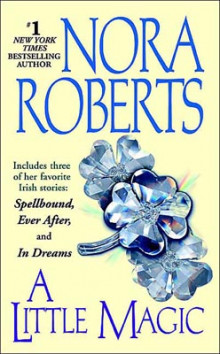 A Little Magic
A Little Magic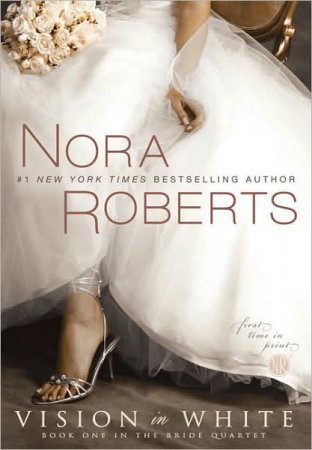 Vision in White
Vision in White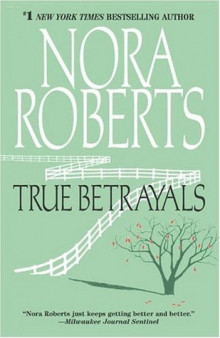 True Betrayals
True Betrayals The Next Always
The Next Always A Man for Amanda
A Man for Amanda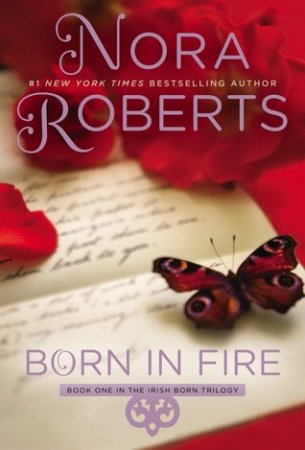 Born in Fire
Born in Fire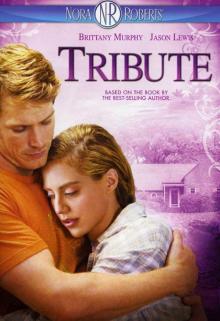 Tribute
Tribute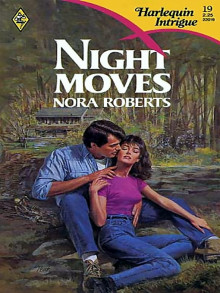 Night Moves
Night Moves Dance Upon the Air
Dance Upon the Air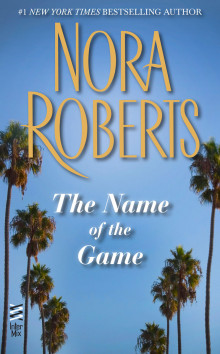 The Name of the Game
The Name of the Game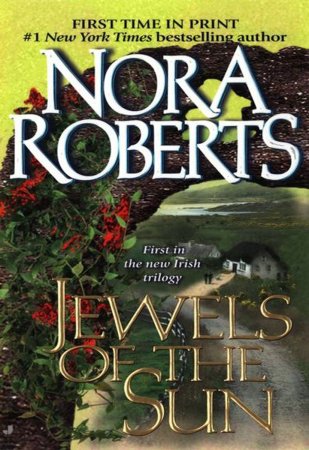 Jewels of the Sun
Jewels of the Sun River's End
River's End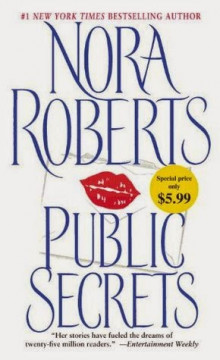 Public Secrets
Public Secrets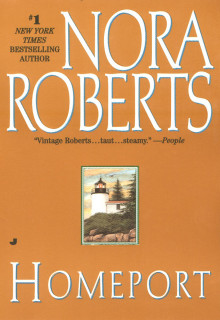 Homeport
Homeport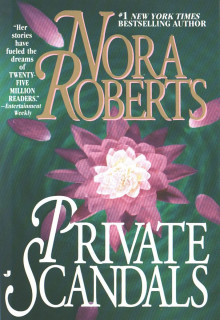 Private Scandals
Private Scandals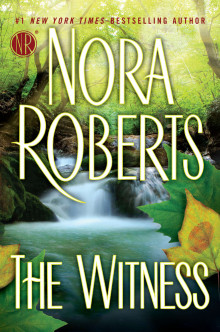 The Witness
The Witness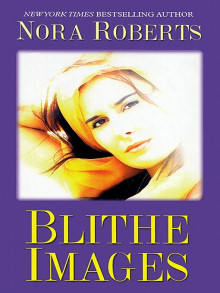 Blithe Images
Blithe Images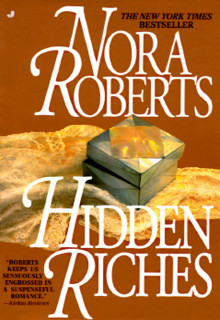 Hidden Riches
Hidden Riches Key of Light
Key of Light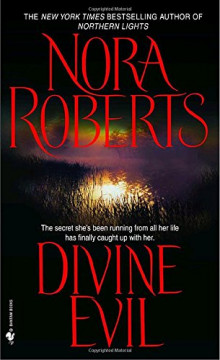 Divine Evil
Divine Evil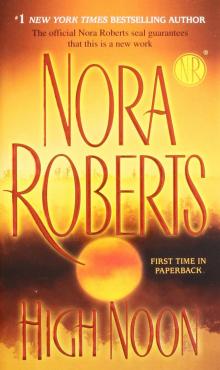 High Noon
High Noon Blue Dahlia
Blue Dahlia Sea Swept
Sea Swept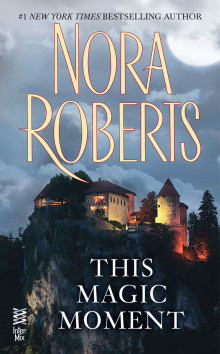 This Magic Moment
This Magic Moment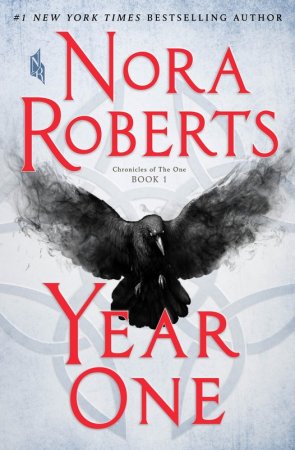 Year One
Year One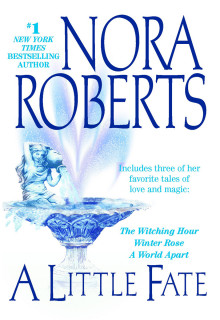 A Little Fate
A Little Fate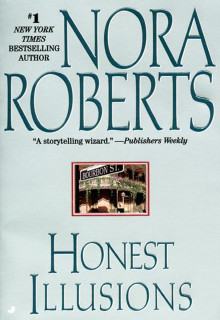 Honest Illusions
Honest Illusions The Reef
The Reef Shelter in Place
Shelter in Place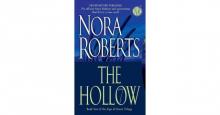 The Hollow
The Hollow Holding the Dream
Holding the Dream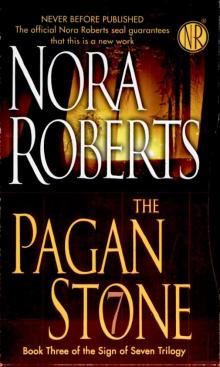 The Pagan Stone
The Pagan Stone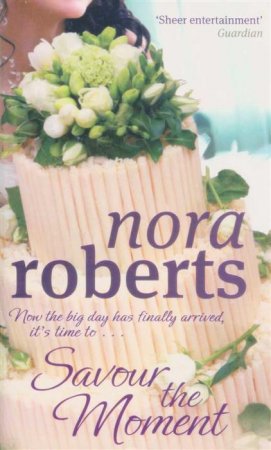 Savour the Moment
Savour the Moment The Perfect Hope
The Perfect Hope Island of Glass
Island of Glass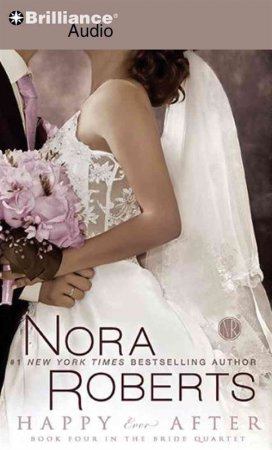 Happy Ever After
Happy Ever After Bed of Roses
Bed of Roses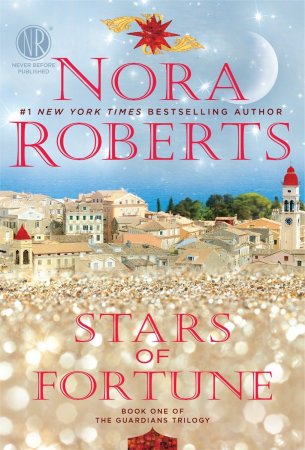 Stars of Fortune
Stars of Fortune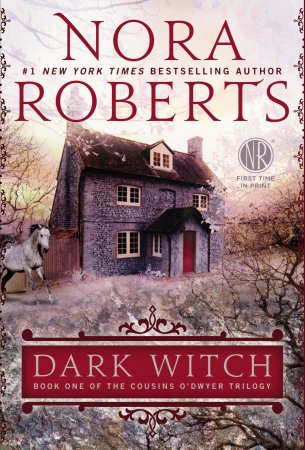 Dark Witch
Dark Witch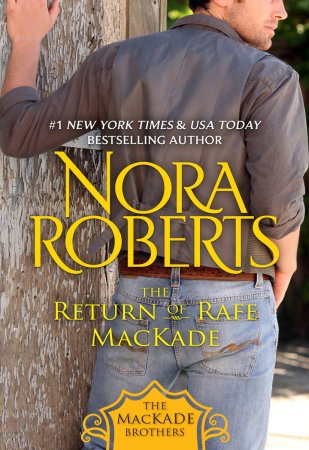 The Return of Rafe MacKade
The Return of Rafe MacKade Chesapeake Blue
Chesapeake Blue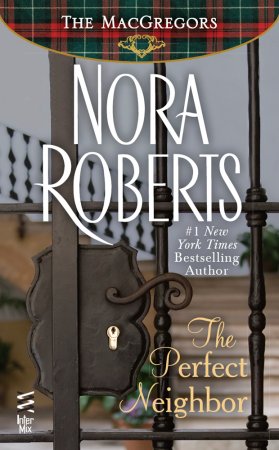 The Perfect Neighbor
The Perfect Neighbor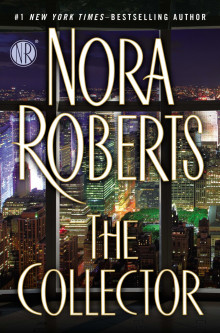 The Collector
The Collector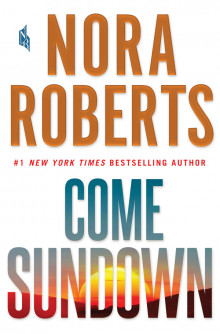 Come Sundown
Come Sundown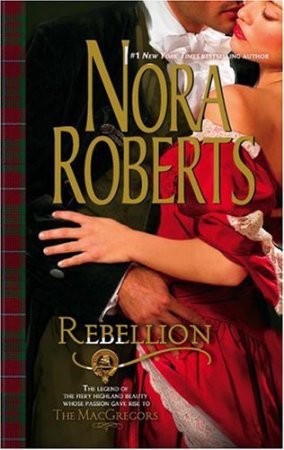 Rebellion
Rebellion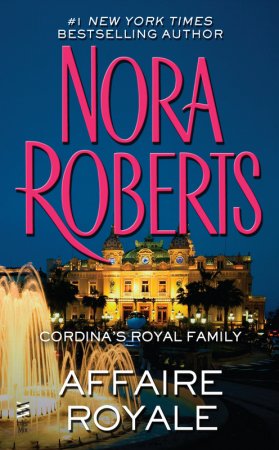 Affaire Royale
Affaire Royale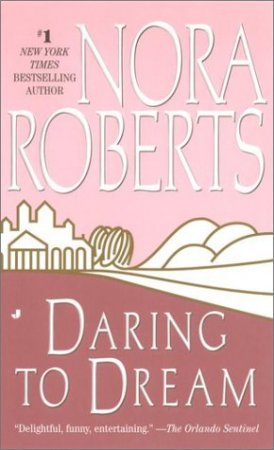 Daring to Dream
Daring to Dream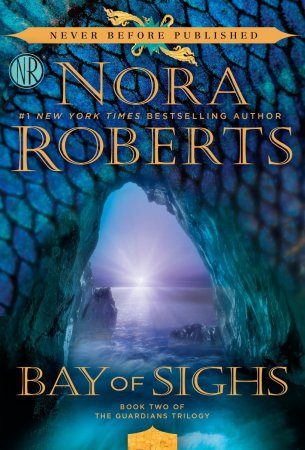 Bay of Sighs
Bay of Sighs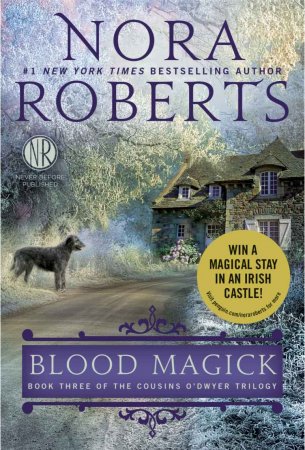 Blood Magick
Blood Magick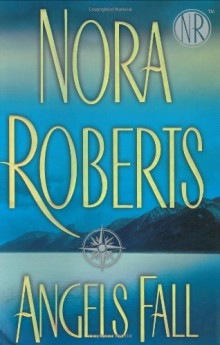 Angels Fall
Angels Fall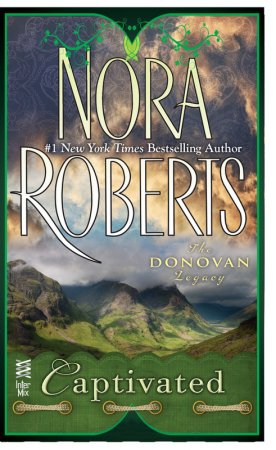 Captivated
Captivated The Last Boyfriend
The Last Boyfriend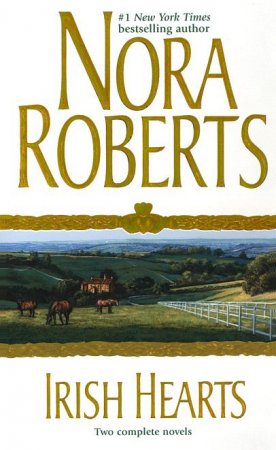 Irish Thoroughbred
Irish Thoroughbred Inner Harbor
Inner Harbor The Right Path
The Right Path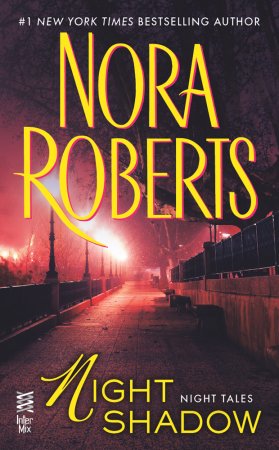 Night Shadow
Night Shadow The Heart of Devin MacKade
The Heart of Devin MacKade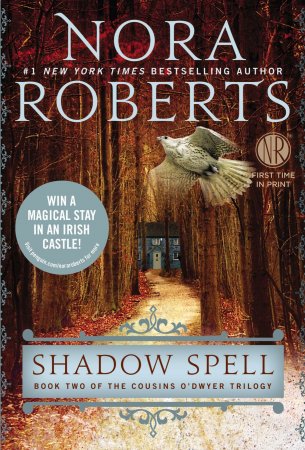 Shadow Spell
Shadow Spell The Playboy Prince
The Playboy Prince The Fall of Shane MacKade
The Fall of Shane MacKade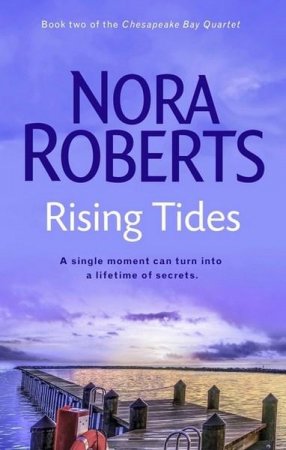 Rising Tides
Rising Tides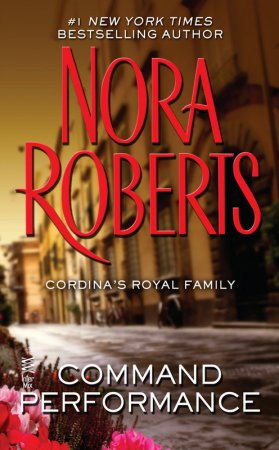 Command Performance
Command Performance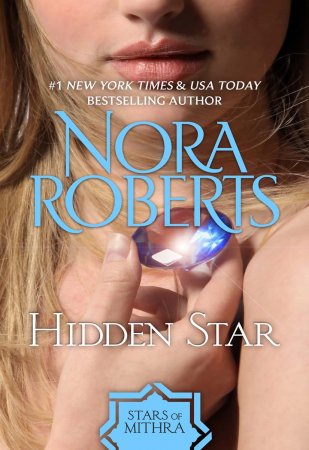 Hidden Star
Hidden Star Cordina's Crown Jewel
Cordina's Crown Jewel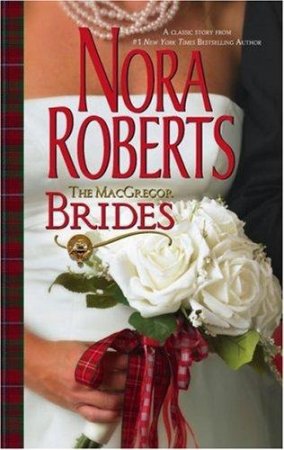 The MacGregor Brides
The MacGregor Brides The Pride of Jared MacKade
The Pride of Jared MacKade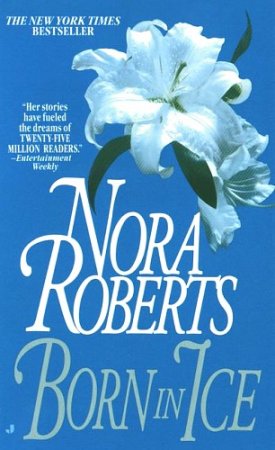 Born in Ice
Born in Ice Whiskey Beach
Whiskey Beach The Last Honest Woman
The Last Honest Woman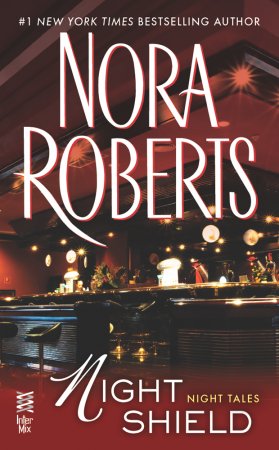 Night Shield
Night Shield Born in Shame
Born in Shame Secret Star
Secret Star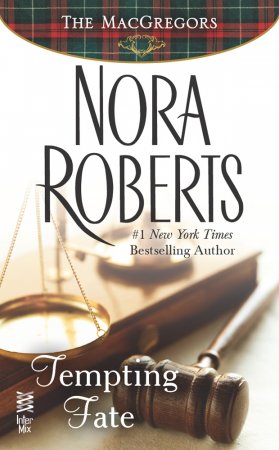 Tempting Fate
Tempting Fate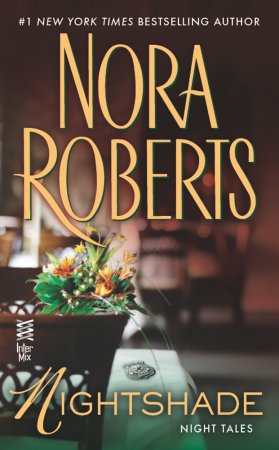 Nightshade
Nightshade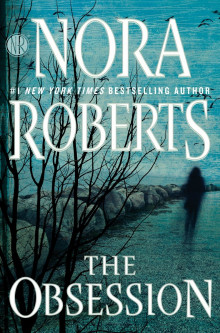 The Obsession
The Obsession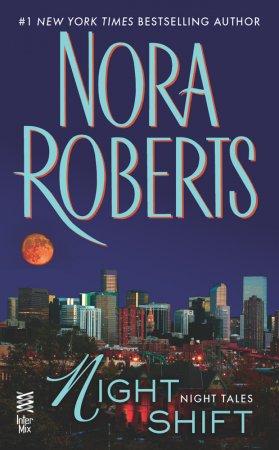 Night Shift
Night Shift Playing The Odds
Playing The Odds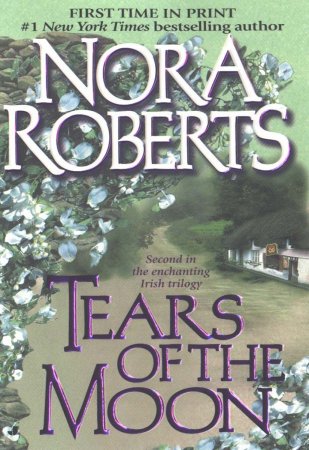 Tears of the Moon
Tears of the Moon One Man's Art
One Man's Art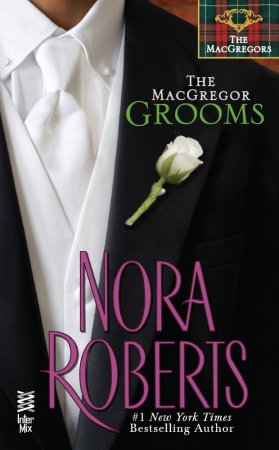 The MacGregor Groom
The MacGregor Groom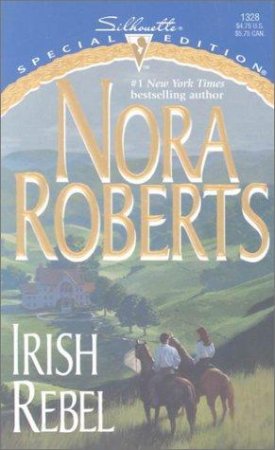 Irish Rebel
Irish Rebel Morrigan's Cross
Morrigan's Cross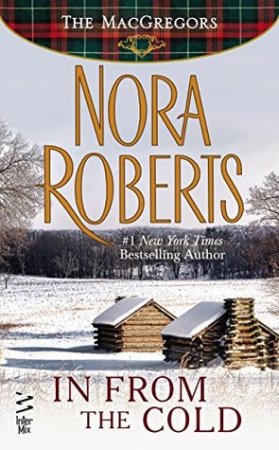 In From The Cold
In From The Cold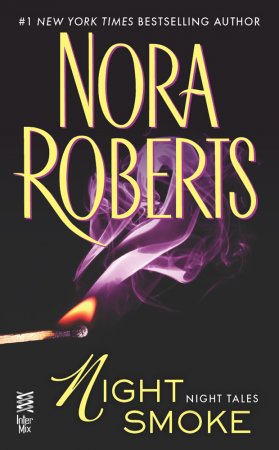 Night Smoke
Night Smoke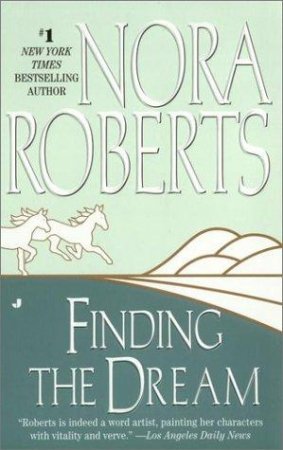 Finding the Dream
Finding the Dream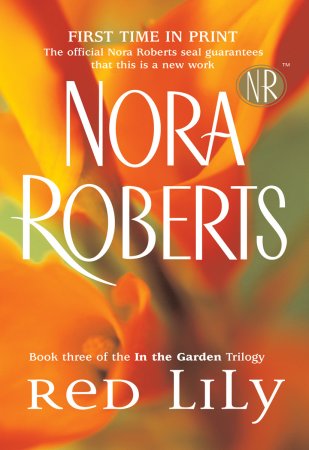 Red Lily
Red Lily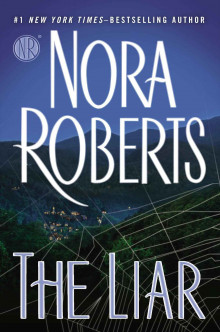 The Liar
The Liar Montana Sky
Montana Sky Heart of the Sea
Heart of the Sea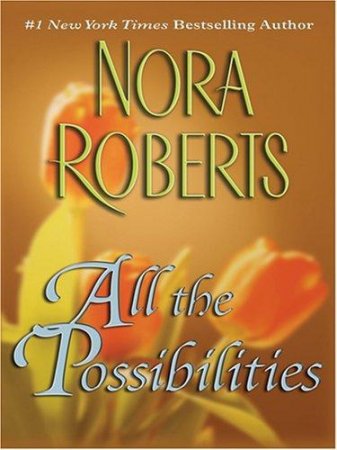 All The Possibilities
All The Possibilities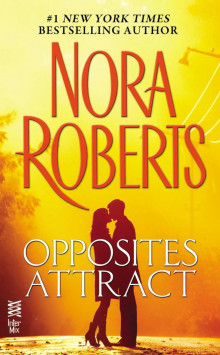 Opposites Attract
Opposites Attract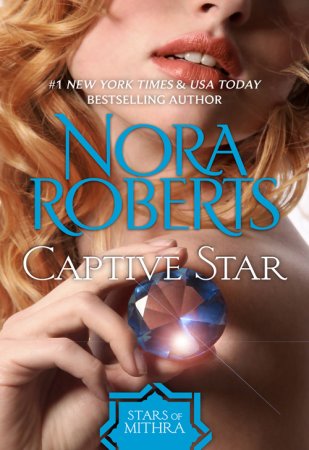 Captive Star
Captive Star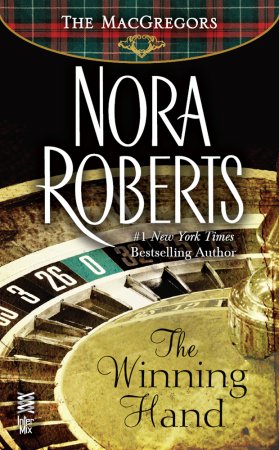 The Winning Hand
The Winning Hand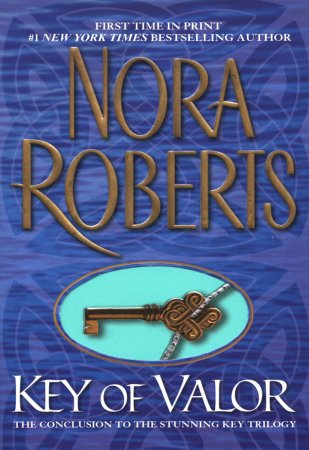 Key of Valor
Key of Valor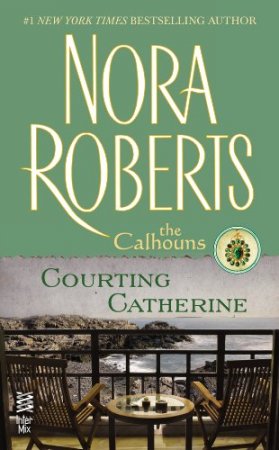 Courting Catherine
Courting Catherine Heaven and Earth
Heaven and Earth Face the Fire
Face the Fire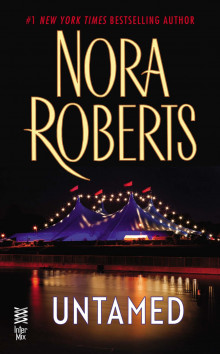 Untamed
Untamed Skin Deep
Skin Deep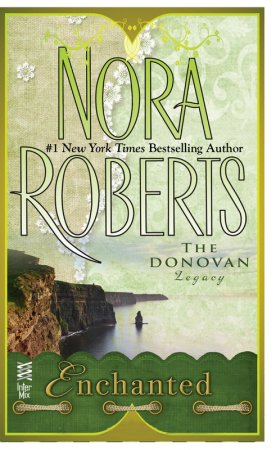 Enchanted
Enchanted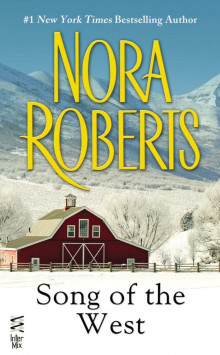 Song of the West
Song of the West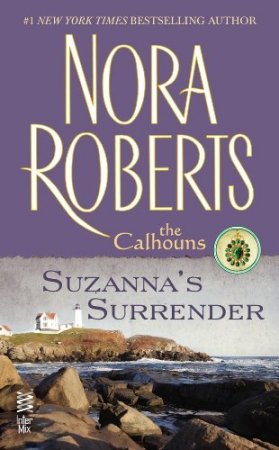 Suzanna's Surrender
Suzanna's Surrender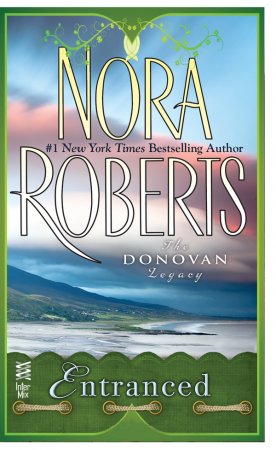 Entranced
Entranced Dance of the Gods
Dance of the Gods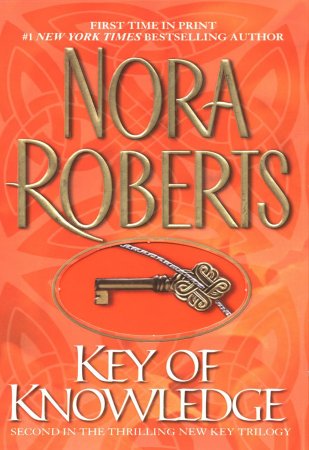 Key of Knowledge
Key of Knowledge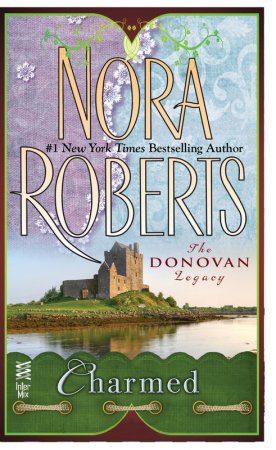 Charmed
Charmed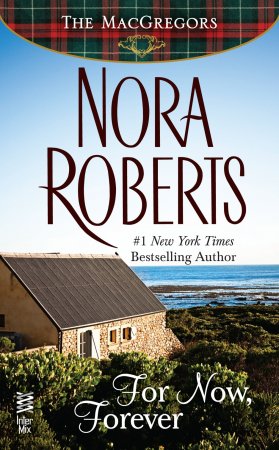 For Now, Forever
For Now, Forever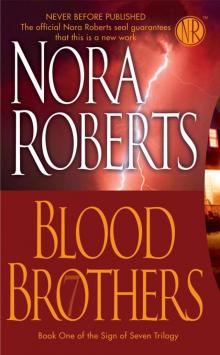 Blood Brothers
Blood Brothers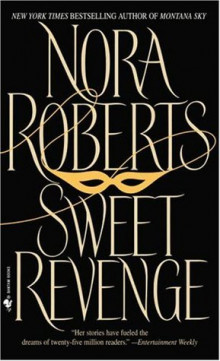 Sweet Revenge
Sweet Revenge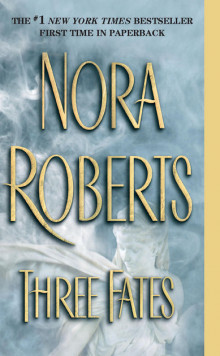 Three Fates
Three Fates Mind Over Matter
Mind Over Matter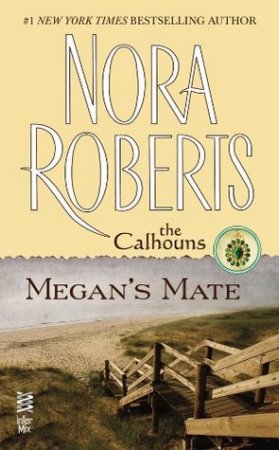 Megan's Mate
Megan's Mate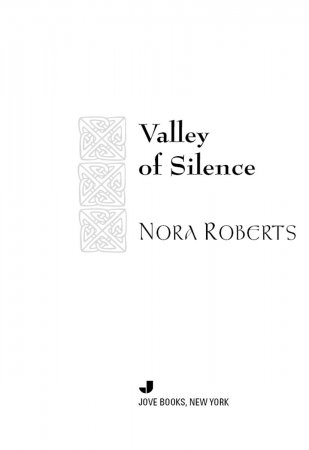 Valley of Silence
Valley of Silence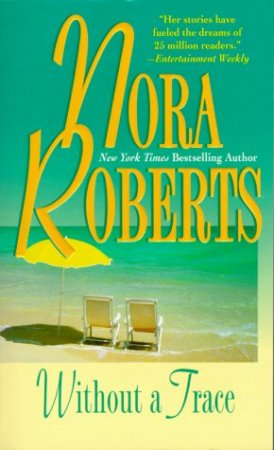 Without A Trace
Without A Trace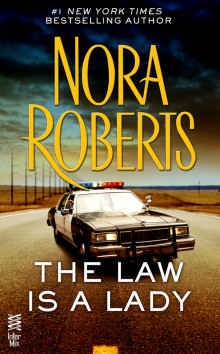 The Law is a Lady
The Law is a Lady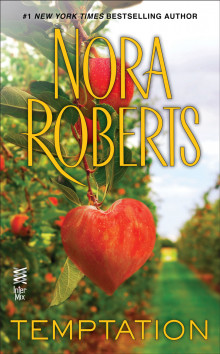 Temptation
Temptation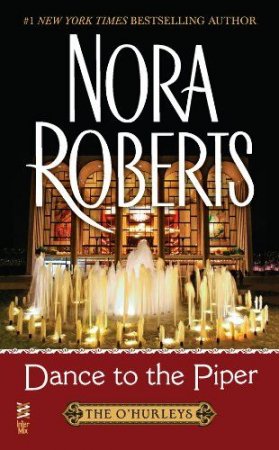 Dance to the Piper
Dance to the Piper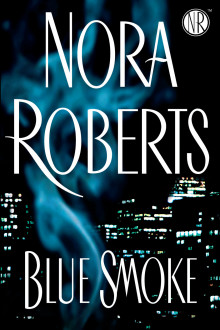 Blue Smoke
Blue Smoke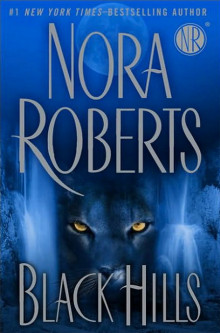 Black Hills
Black Hills The Heart's Victory
The Heart's Victory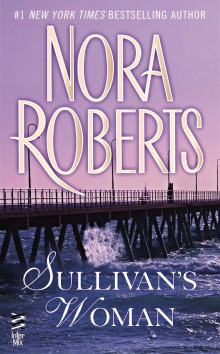 Sullivan's Woman
Sullivan's Woman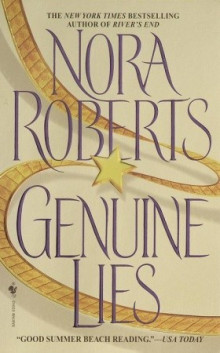 Genuine Lies
Genuine Lies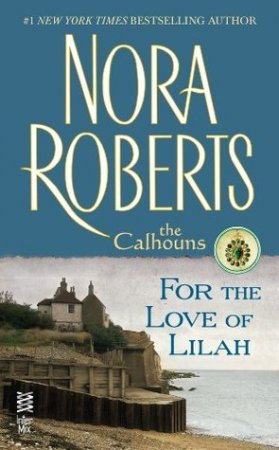 For the Love of Lilah
For the Love of Lilah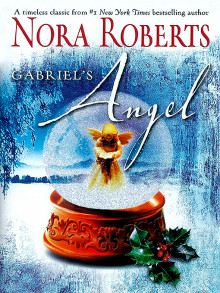 Gabriel's Angel
Gabriel's Angel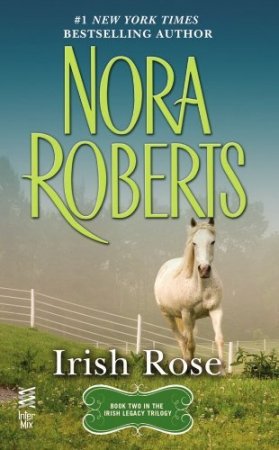 Irish Rose
Irish Rose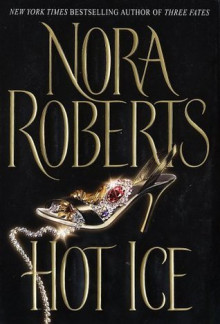 Hot Ice
Hot Ice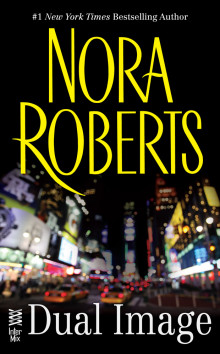 Dual Image
Dual Image Lawless
Lawless Catch My Heart
Catch My Heart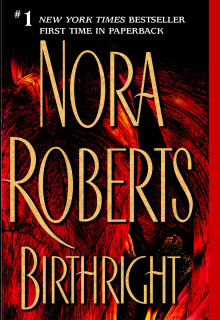 Birthright
Birthright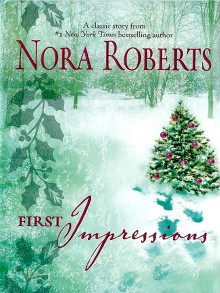 First Impressions
First Impressions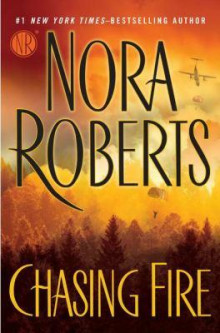 Chasing Fire
Chasing Fire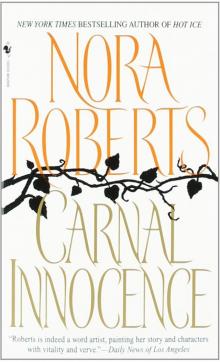 Carnal Innocence
Carnal Innocence Best Laid Plans
Best Laid Plans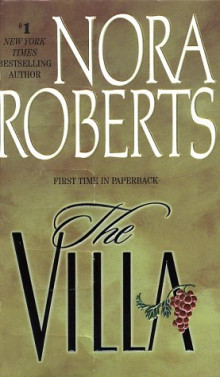 The Villa
The Villa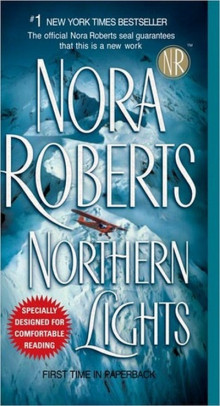 Northern Lights
Northern Lights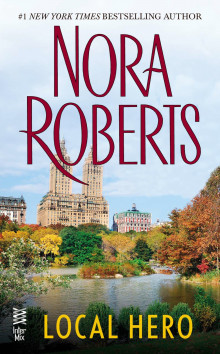 Local Hero
Local Hero Island of Flowers
Island of Flowers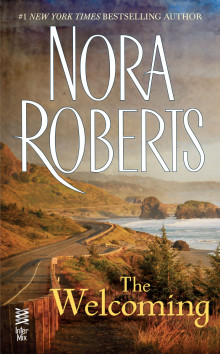 The Welcoming
The Welcoming All I Want for Christmas
All I Want for Christmas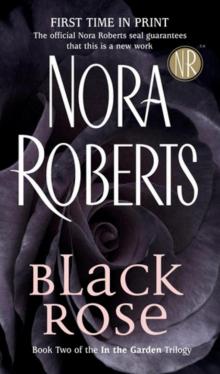 Black Rose
Black Rose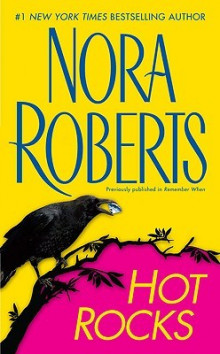 Hot Rocks
Hot Rocks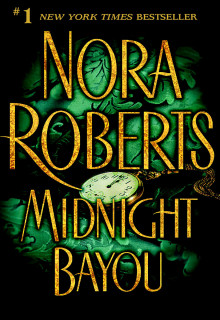 Midnight Bayou
Midnight Bayou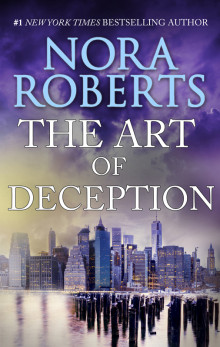 The Art of Deception
The Art of Deception From This Day
From This Day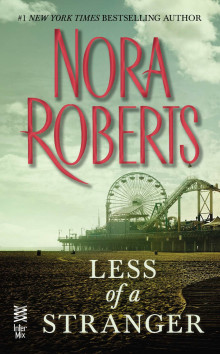 Less of a Stranger
Less of a Stranger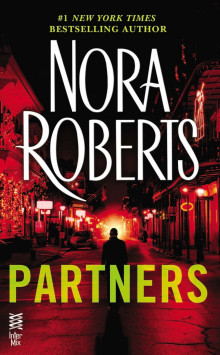 Partners
Partners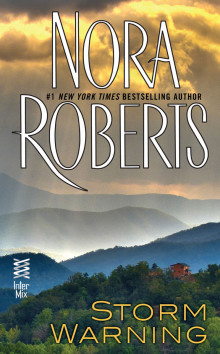 Storm Warning
Storm Warning Once More With Feeling
Once More With Feeling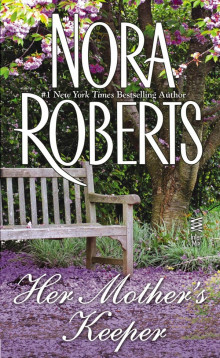 Her Mother's Keeper
Her Mother's Keeper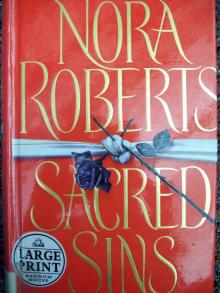 Sacred Sins
Sacred Sins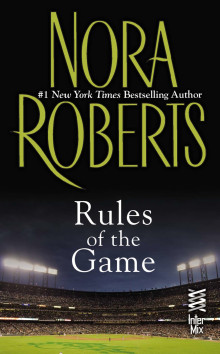 Rules of the Game
Rules of the Game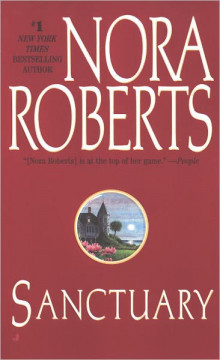 Sanctuary
Sanctuary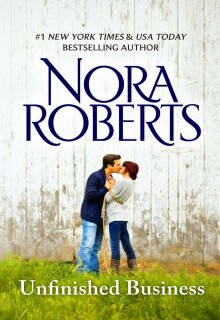 Unfinished Business
Unfinished Business Cordina's Royal Family Collection
Cordina's Royal Family Collection Dangerous Embrace
Dangerous Embrace One Summer
One Summer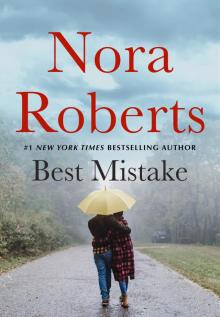 The Best Mistake
The Best Mistake Boundary Lines
Boundary Lines Under Currents
Under Currents The Stanislaski Series Collection, Volume 1
The Stanislaski Series Collection, Volume 1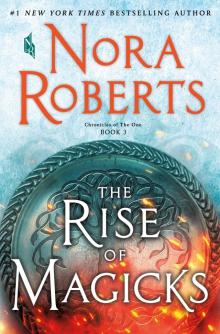 The Rise of Magicks
The Rise of Magicks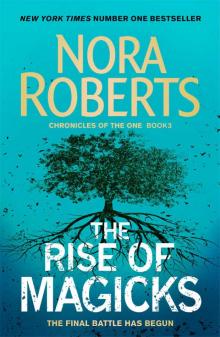 The Rise of Magicks (Chronicles of The One)
The Rise of Magicks (Chronicles of The One) The Awakening: The Dragon Heart Legacy Book 1
The Awakening: The Dragon Heart Legacy Book 1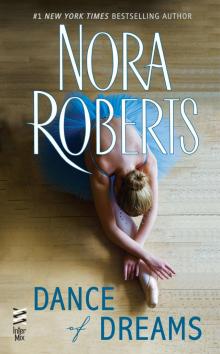 Dance of Dreams
Dance of Dreams Skin Deep: The O'Hurleys
Skin Deep: The O'Hurleys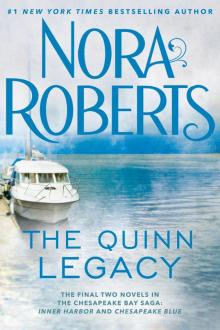 The Quinn Legacy: Inner Harbor ; Chesapeake Blue
The Quinn Legacy: Inner Harbor ; Chesapeake Blue![[Chronicles of the One 03.0] The Rise of Magicks Read online](http://i1.bookreadfree.com/11/chronicles_of_the_one_03_0_the_rise_of_magicks_preview.jpg) [Chronicles of the One 03.0] The Rise of Magicks
[Chronicles of the One 03.0] The Rise of Magicks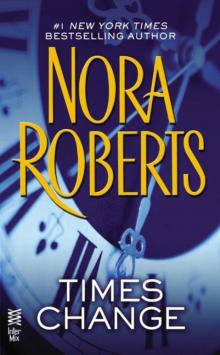 Times Change
Times Change Dance to the Piper: The O'Hurleys
Dance to the Piper: The O'Hurleys Christmas In the Snow: Taming Natasha / Considering Kate
Christmas In the Snow: Taming Natasha / Considering Kate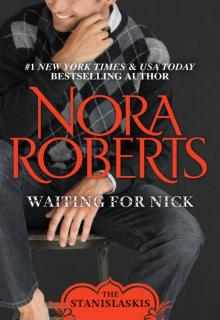 Waiting for Nick
Waiting for Nick Summer Desserts
Summer Desserts Dream 2 - Holding the Dream
Dream 2 - Holding the Dream The Novels of Nora Roberts, Volume 2
The Novels of Nora Roberts, Volume 2 In the Garden Trilogy
In the Garden Trilogy Eight Classic Nora Roberts Romantic Suspense Novels
Eight Classic Nora Roberts Romantic Suspense Novels Best Laid Plans jh-2
Best Laid Plans jh-2 From the Heart
From the Heart Holiday Wishes
Holiday Wishes Dream 1 - Daring to Dream
Dream 1 - Daring to Dream Second Nature
Second Nature Summer Pleasures
Summer Pleasures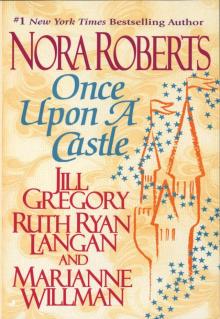 Once Upon a Castle
Once Upon a Castle Stars of Mithra Box Set: Captive StarHidden StarSecret Star
Stars of Mithra Box Set: Captive StarHidden StarSecret Star Impulse
Impulse The Irish Trilogy by Nora Roberts
The Irish Trilogy by Nora Roberts The Pride Of Jared Mackade tmb-2
The Pride Of Jared Mackade tmb-2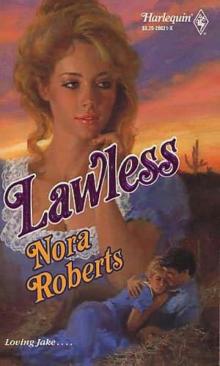 Lawless jh-3
Lawless jh-3 Taming Natasha
Taming Natasha Endless Summer
Endless Summer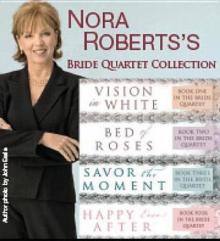 Bride Quartet Collection
Bride Quartet Collection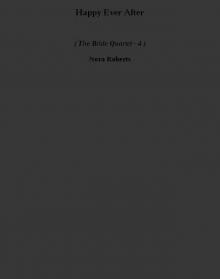 Happy Ever After tbq-4
Happy Ever After tbq-4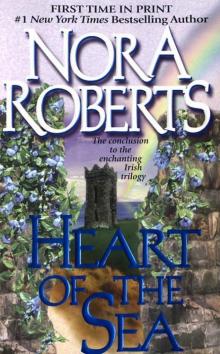 Heart Of The Sea goa-3
Heart Of The Sea goa-3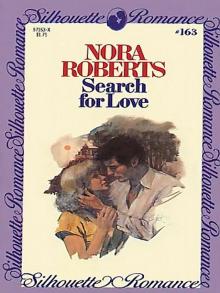 Search for Love
Search for Love Once upon a Dream
Once upon a Dream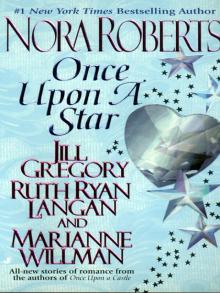 Once Upon a Star
Once Upon a Star Dream Trilogy
Dream Trilogy Risky Business
Risky Business The Novels of Nora Roberts, Volume 3
The Novels of Nora Roberts, Volume 3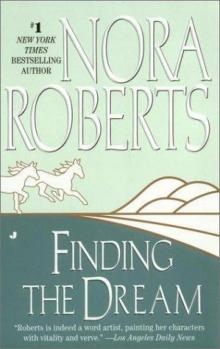 Dream 3 - Finding the Dream
Dream 3 - Finding the Dream Promises in Death id-34
Promises in Death id-34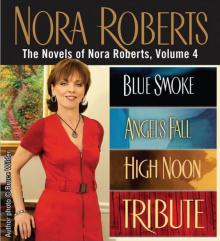 The Novels of Nora Roberts, Volume 4
The Novels of Nora Roberts, Volume 4 The Perfect Hope ib-3
The Perfect Hope ib-3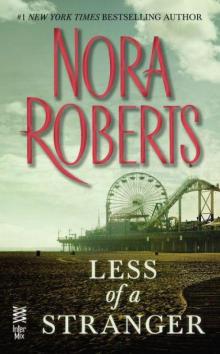 Less than a Stranger
Less than a Stranger Savour the Moment: Now the Big Day Has Finally Arrived, It's Time To...
Savour the Moment: Now the Big Day Has Finally Arrived, It's Time To... Convincing Alex
Convincing Alex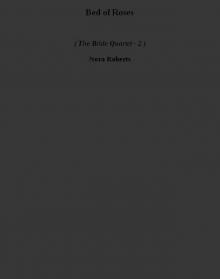 Bed of Roses tbq-2
Bed of Roses tbq-2 Savour the Moment tbq-3
Savour the Moment tbq-3 Lessons Learned
Lessons Learned Key Of Valor k-3
Key Of Valor k-3 Red lily gt-3
Red lily gt-3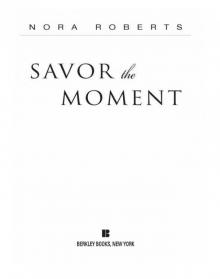 Savor the Moment
Savor the Moment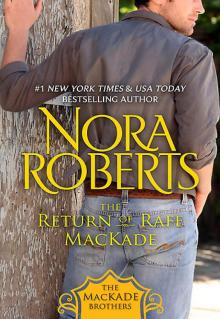 The Return Of Rafe Mackade tmb-1
The Return Of Rafe Mackade tmb-1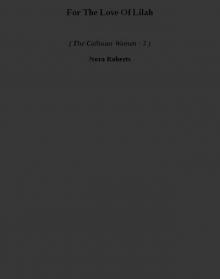 For The Love Of Lilah tcw-3
For The Love Of Lilah tcw-3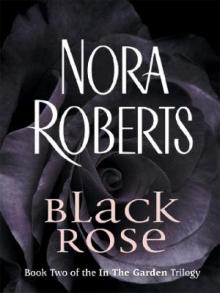 Black Rose gt-2
Black Rose gt-2 Novels: The Law is a Lady
Novels: The Law is a Lady Chesapeake Bay Saga 1-4
Chesapeake Bay Saga 1-4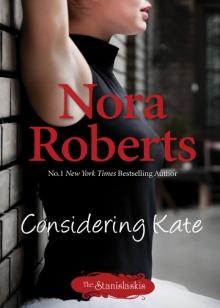 Considering Kate
Considering Kate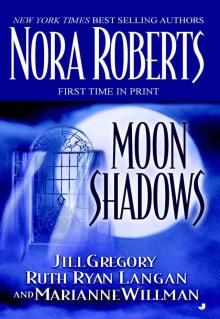 Moon Shadows
Moon Shadows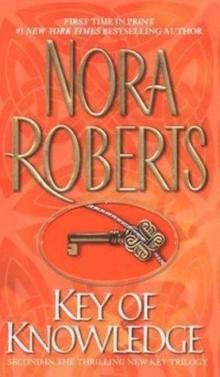 Key of Knowledge k-2
Key of Knowledge k-2 The Sign of Seven Trilogy
The Sign of Seven Trilogy Once Upon a Kiss
Once Upon a Kiss The Novels of Nora Roberts, Volume 5
The Novels of Nora Roberts, Volume 5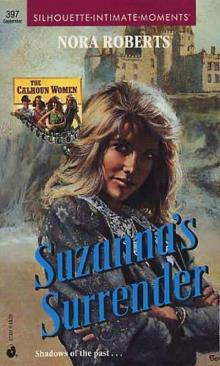 Suzanna's Surrender tcw-4
Suzanna's Surrender tcw-4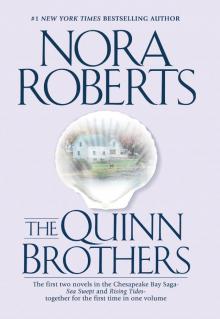 The Quinn Brothers
The Quinn Brothers Falling for Rachel
Falling for Rachel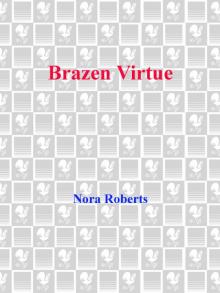 Brazen Virtue
Brazen Virtue Time Was
Time Was The Gallaghers of Ardmore Trilogy
The Gallaghers of Ardmore Trilogy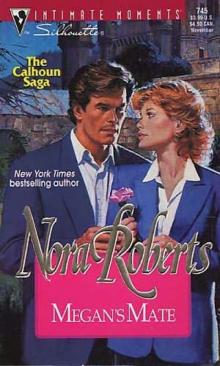 Megan's Mate tcw-5
Megan's Mate tcw-5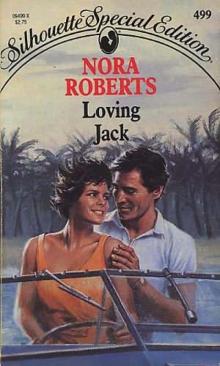 Loving Jack jh-1
Loving Jack jh-1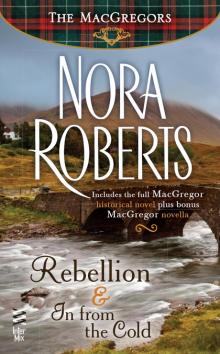 Rebellion & In From The Cold
Rebellion & In From The Cold Blue Dahlia gt-1
Blue Dahlia gt-1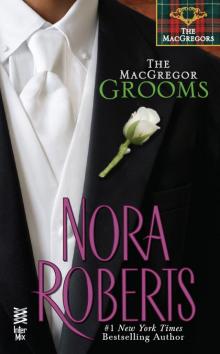 The MacGregor Grooms
The MacGregor Grooms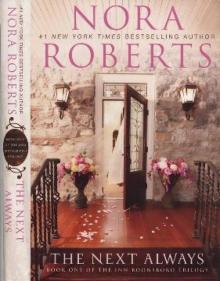 The Next Always tibt-1
The Next Always tibt-1 The Heart Of Devin Mackade tmb-3
The Heart Of Devin Mackade tmb-3 The Novels of Nora Roberts Volume 1
The Novels of Nora Roberts Volume 1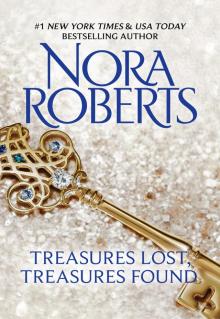 Treasures Lost, Treasures Found
Treasures Lost, Treasures Found Nora Roberts's Circle Trilogy
Nora Roberts's Circle Trilogy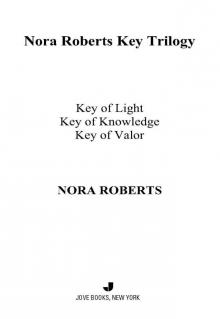 The Key Trilogy
The Key Trilogy The Fall Of Shane Mackade tmb-4
The Fall Of Shane Mackade tmb-4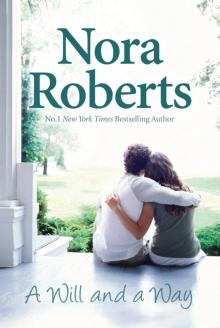 A Will And A Way
A Will And A Way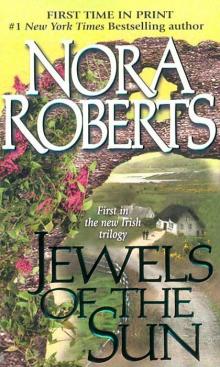 Jewels of the Sun goa-1
Jewels of the Sun goa-1 Luring a Lady
Luring a Lady